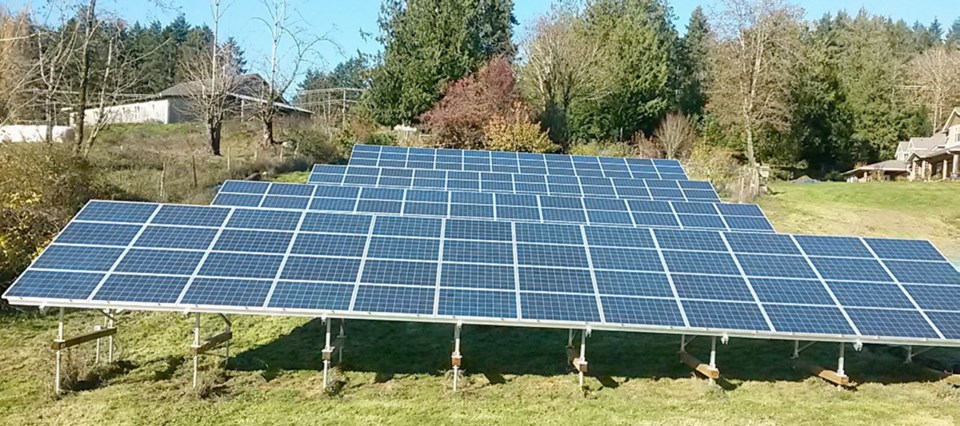Commentary by an environmental scientist who used to be a consultant to oilsands companies in Alberta; he is a member of the B.C. Community Solar Network.
Fossil fuel pipelines generate a lot of political heat and smoke in B.C. But this controversy is unnecessary if we shift our thinking. Instead of oil or gas pipelines, let’s build community “solar pipelines” using the sun’s limitless and free energy.
We need community solar energy because climate change events, like forest fires, generate actual heat and smoke that threatens our health and safety.
The words of the provincial government green plan say that we need energy that is “clean and made in B.C.” But unfortunately, there is little political action on this crisis — over two-thirds of our energy still comes from dirty fossil fuels, which must be replaced with clean energy. But our public energy utility, regulated by politicians, is not onside.
B.C. Hydro is ignoring the urgent need for renewable energy to replace fossil fuels. Instead, they pretend that hydro power is secure, when rainfall patterns and glacier melting rates are changing. They pretend that hydro power is clean, when its greenhouse gas emissions are five to seven times higher than solar. And they pretend that hydro is more economical than solar.
This public corporation does not understand the word “economical.” It has a huge hidden debt which you and I must pay, is building an over-budget and geologically risky Site C dam and cannot stop massive power outages when province-wide storms or fires can wipe out local electrical grids in an instant.
I have built a small solar farm on Vancouver Island that produces energy at less cost than will the Site C dam project, operates with infinitely less environmental damage than the Trans Mountain bitumen pipeline and emits massively less greenhouse gases than gas fracking projects.
I get a credit on my electricity bill for sharing excess daily energy with my local community using a “solar pipeline” that feeds from my house into B.C. Hydro’s electrical grid — this is called net-metering. OK, my pipeline is just a 100-metre underground wire from the solar panels to the garage; but it transports cleaner and cheaper energy than any oil or gas pipeline or hydro dam.
My solar farm makes about five to six per cent annual profit. My house has zero electric or heating bills. And I fuel my e-car with my own energy produced entirely free by the sun, which cannot be controlled by any corporation or government. Finally, I get paid cash for any yearly surplus energy.
But B.C. Hydro wants to end all community solar businesses, saying it doesn’t need the energy — and, of course, ignoring climate change. Yet they spent $54.9 million in March to buy electricity from dirty coal — even though photons from the sun were bouncing unused off rooftops here in B.C. Perhaps they fear losing their monopoly?
As a result of questionable government support for solar, the B.C. Community Solar Network has been formed to convince politicians to support individual and community solar projects.
Local solar would be less than 50 per cent of the cost of electricity from the Site C dam. And since solar farms of many different sizes are affordable, they could be owned by citizens, businesses, or municipal governments.
Solar is not the only solution to the climate-change crisis, but it will help secure our energy supply, create local jobs and reduce oil and gas consumption that contributes to events like those terrifying forest fires — a win-win-win.
To get secure community energy, we need power from the people . . . and the sun.
Peter Nix can be contacted at cowichancarbonbusters@shaw.ca



